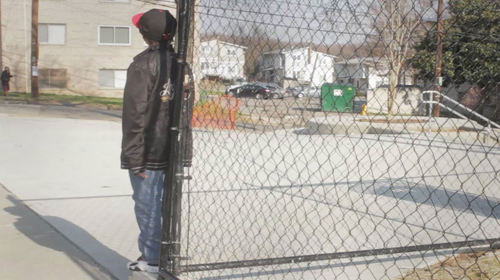
When Officer David Bailey grabbed a 10-year-old student by the back of his head and slammed it into the school cafeteria table, it is safe to say that student was not free to leave. On that afternoon, Bailey decided that his routine beat on the streets of Southeast D.C. extended into the hallways of Moten Elementary School.
Although Bailey was not a trained school resource officer contracted from the Metropolitan Police Department nor one of the three contract officers assigned to Moten at the time, his presence raised no red flags. Regular visits from the police in D.C. Public Schools had become ubiquitous.
On the day of the alleged assault, the student, "T.P." had been sent to the cafeteria for the infraction of failing to adequately participate in music class. The result of his childish behavior was a full-on police encounter.
One emergency room, two weeks and countless headaches later. T.P. seemed to be back to normal. Only his mother could see that something about him had changed: T.P. was now afraid to go to school.
Last week when the ACLU of the Nation's Capital filed a civil complaint for damages against a Metropolitan Police Officer on behalf of T.P., news stations clamored to hear the story of the alleged assault. Was this story of a rogue cop's brutality against a young boy, just a freak anomaly or the result of a system by design? Perhaps it was both. In the matrix of policies and police ushering black and brown students out of classrooms and into courtrooms, the School-to-Prison Pipeline takes shape.
Although no crimes had been reported at Moten in the two years before the incident with Bailey, D.C. Public Schools continues to promote policies which increase police involvement. Moten, which serves indigent African American children, sits atop a hill overlooking a community with staggering unemployment rates. Here, police on their beats weave a prison-like environment from T.P.'s doorstep all the way into his school cafeteria.
There was no guidance counselor or teacher present when Bailey, a crime-fighting cop, decided to take school disciplinary matters into his own hands. Criminalizing the normal behavior of black and brown children is the hallmark of the School-to-Prison Pipeline. When non-criminal behaviors in school result in interactions with the criminal justice system, suspension or expulsions, children suffer a powerful blow to their dignity and trust in the school system. Children of color bear a disproportionate burden of unconstitutional police encounters in the educational context.
On the south side of the Anacostia River where Moten sits, the police state and its culture of surveillance erodes any semblance of civil liberties for local residents. T.P. and his classmates cannot remember a time before schools began having metal detectors and roving police officers. But they will likely never forget the day they discovered that school was a place that is unfair and unsafe.
In the wake of the Newtown School Massacre, lawmakers on the north side of the Anacostia River make impassioned speeches about the need to expand police presence in schools. Amidst the feverish political debates T.P.'s mother seems startlingly clear when she says, "Police don't belong in schools with children."
Learn more about police brutality and other civil liberty issues: Sign up for breaking news alerts, follow us on Twitter, and like us on Facebook.

